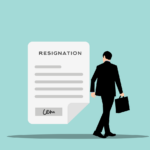
Sometimes, What You Choose Not To Do Is As Important As What You Do Choose To Do
//
 The very first article I ever wrote as an in-house counsel was called, “In-House Counsel — More than just a legal advisor.” I self-published that article on LinkedIn on May 18, 2020. In that article, I wrote about the importance of becoming a strategic business partner. I wrote that, while business partners were people who worked with other business partners to achieve a common purpose, strategic business partners were the people who were “included in executive level conversations about an organization’s future, its missions, goals, and overall strategy goals” and that the executive leadership expected those strategic business partners “to offer recommendations and to help make decisions that [would] allow the organization to achieve its goals.”
The very first article I ever wrote as an in-house counsel was called, “In-House Counsel — More than just a legal advisor.” I self-published that article on LinkedIn on May 18, 2020. In that article, I wrote about the importance of becoming a strategic business partner. I wrote that, while business partners were people who worked with other business partners to achieve a common purpose, strategic business partners were the people who were “included in executive level conversations about an organization’s future, its missions, goals, and overall strategy goals” and that the executive leadership expected those strategic business partners “to offer recommendations and to help make decisions that [would] allow the organization to achieve its goals.”
With this article, I would like to expand on that LinkedIn article by writing about what the in-house counsel does and does not do in the role of a strategic business partner. As a strategic business partner, it is important that the in-house counsel never forget that the in-house counsel represents but one voice on a leadership team and that the in-house counsel comes to the table with a very specific perspective.
googletag.cmd.push( function() { // Enable lazy loading. googletag.pubads().enableLazyLoad({ renderMarginPercent: 150, mobileScaling: 2 }); // Display ad. googletag.display( "div-id-for-top-300x250" ); googletag.enableServices(); });The in-house counsel needs to remember that not every problem is the in-house counsel’s problem to solve, that not every problem is ready to be solved by the in-house counsel, and that not every crisis should be managed by the in-house counsel.
 Sponsored Finding The Right eDiscovery Software: Your Guide Through A Grueling Process Looking to minimize harmful technology trade-offs, create long-term efficiency, and lower overall eDiscovery costs? These actionable steps can make it happen From Above The Law and Lighthouse
Sponsored Finding The Right eDiscovery Software: Your Guide Through A Grueling Process Looking to minimize harmful technology trade-offs, create long-term efficiency, and lower overall eDiscovery costs? These actionable steps can make it happen From Above The Law and Lighthouse Not Every Problem Is The In-House Counsel’s Problem To Solve
A lawyer is trained to solve problems, but finding all answers to all problems is not always the most efficient and beneficial use of a lawyer’s time. When there are company employees who have the requisite skills and abilities to solve problems in their areas of operation, those company employees should be the ones to solve those operational problems. The role of the in-house counsel should be to help, to support, and to guide those company employees as they work through problems themselves in a legally defendable manner.
googletag.cmd.push( function() { // Enable lazy loading. googletag.pubads().enableLazyLoad({ renderMarginPercent: 150, mobileScaling: 2 }); // Display ad. googletag.display( "div-id-for-middle-300x250" ); googletag.enableServices(); }); googletag.cmd.push( function() { // Enable lazy loading. googletag.pubads().enableLazyLoad({ renderMarginPercent: 150, mobileScaling: 2 }); // Display ad. googletag.display( "div-id-for-storycontent-440x100" ); googletag.enableServices(); }); googletag.cmd.push( function() { // Enable lazy loading. googletag.pubads().enableLazyLoad({ renderMarginPercent: 150, mobileScaling: 2 }); // Display ad. googletag.display( "div-id-for-in-story-youtube-1x1" ); googletag.enableServices(); });For those employees new to their areas of operation, the in-house counsel may be called upon to take a more active role in the problem-solving process. When that happens, the in-house counsel really needs to resist the temptation, however, to assume all responsibility for the problem. A good in-house counsel will take the time to walk the new and inexperienced employee through the problem-solving process. The in-house counsel’s ultimate objective should be to create capacity and build confidence in each and every employee.
When the in-house counsel is successful in creating capacity and building confidence, the in-house counsel should expect to spend less time with routine problem solving and more time on complex problems. When the in-house counsel is unsuccessful in creating capacity and building confidence or fails to even try, that in-house counsel will prevent the company from growing and may even inadvertently stifle business.
Sponsored Sponsored What All Lawyers Need To Know About Cannabis Learn the risks and rewards of this burgeoning industry in our March 31 webinar. From Above The Law and Embroker
Sponsored What All Lawyers Need To Know About Cannabis Learn the risks and rewards of this burgeoning industry in our March 31 webinar. From Above The Law and Embroker  Sponsored How Flexible Talent Can Rescue GCs From The Great Resignation In this free white paper, our friends at Axiom provide three simple steps for immediately integrating on-demand talent into your legal team From Above The Law and Axiom
Sponsored How Flexible Talent Can Rescue GCs From The Great Resignation In this free white paper, our friends at Axiom provide three simple steps for immediately integrating on-demand talent into your legal team From Above The Law and Axiom  Sponsored This Digital Marketing Firm Wants To Be A Part Of Your Team Digital Logic's CEO explains how a small, skilled, and responsive company can help grow your business. From Above the Law
Sponsored This Digital Marketing Firm Wants To Be A Part Of Your Team Digital Logic's CEO explains how a small, skilled, and responsive company can help grow your business. From Above the Law  Sponsored This Digital Marketing Firm Wants To Be A Part Of Your Team Digital Logic's CEO explains how a small, skilled, and responsive company can help grow your business. From Above the Law
Sponsored This Digital Marketing Firm Wants To Be A Part Of Your Team Digital Logic's CEO explains how a small, skilled, and responsive company can help grow your business. From Above the Law Remember the ancient proverb “give a man a fish you feed him for a day. Teach a man to fish and you feed him for a lifetime”? If you see your business wrestling to land a big fish, by all means jump in and help hold the rod, but stop insisting on being the only one doing the fishing!
Not Every Problem Is Ready To Be Solved By The In-House Counsel.
When the in-house counsel develops the reputation as a trusted business partner, it is natural for other internal business partners to want to seek out the in-house counsel to talk through issues. When that happens, it is important for the in-house counsel to quickly assess what the expectations are of that business partner. Not everyone comes to the in-house counsel with a problem that needs to be solved.
googletag.cmd.push( function() { // Enable lazy loading. googletag.pubads().enableLazyLoad({ renderMarginPercent: 150, mobileScaling: 2 }); // Display ad. googletag.display( "div-id-for-bottom-300x250" ); googletag.enableServices(); });In my experience, people often want to talk through the challenges they face. They want to make sure they have spotted all of the potential issues, that they have identified all of the possible responses to those issues, and that they have a reasonable understanding of the risks associated with the different responses.
I have had more than my share of conversations with people who just wanted another person to act as a sounding board. They just wanted someone to actively listen as they worked through issues out loud.
Sponsored Sponsored Finding The Right eDiscovery Software: Your Guide Through A Grueling Process Looking to minimize harmful technology trade-offs, create long-term efficiency, and lower overall eDiscovery costs? These actionable steps can make it happen From Above The Law and Lighthouse
Sponsored Finding The Right eDiscovery Software: Your Guide Through A Grueling Process Looking to minimize harmful technology trade-offs, create long-term efficiency, and lower overall eDiscovery costs? These actionable steps can make it happen From Above The Law and Lighthouse  Sponsored Join A Top Tier Real Estate Practice In Chicago with an option to be fully remote. From Kinney Recruiting
Sponsored Join A Top Tier Real Estate Practice In Chicago with an option to be fully remote. From Kinney Recruiting Not Every Crisis Should Be Managed By The In-House Counsel
As an in-house counsel, there is no reason for you to be large and in charge. Liability is but one consideration when company reputation is at stake. Decision making must be a team effort. Washington D.C.-based attorney and crisis expert Richard Levick said it best when he said: “Lawyers don’t drive the bus. They’re only sitting near the front.” As Tony Jaques pointed out in his article that appeared in the February 22, 2022, ACC Newsletter, “Who Should Take the Lead in a Crisis?”:
• “[N]either the communicator nor the lawyer should be trying to ‘take the lead’ when a crisis threatens reputation.” • “[L]awyers and communicators need to do a better job of listening to each other, and the client needs to do a better job of listening to them both.” • “They should be working together to support the CEO or another top executive to make the right decisions and be the face of the organization.”If you are an in-house counsel reading this article, my message to you is simple — sometimes what you choose not to do is even more important than what you choose to do.
 Lisa Lang is an in-house lawyer and thought leader who is passionate about all things in-house. She has recently launched a website and blog Why This, Not That™ to serve as a resource for in-house lawyers. You can e-mail her at [email protected], connect with her on LinkedIn, or follow her on Twitter.
Lisa Lang is an in-house lawyer and thought leader who is passionate about all things in-house. She has recently launched a website and blog Why This, Not That™ to serve as a resource for in-house lawyers. You can e-mail her at [email protected], connect with her on LinkedIn, or follow her on Twitter.
In-House Counsel, Lisa Lang
Introducing Jobbguru: Your Gateway to Career Success
The ultimate job platform is designed to connect job seekers with their dream career opportunities. Whether you're a recent graduate, a seasoned professional, or someone seeking a career change, Jobbguru provides you with the tools and resources to navigate the job market with ease.
Take the next step in your career with Jobbguru:
Don't let the perfect job opportunity pass you by. Join Jobbguru today and unlock a world of career possibilities. Start your journey towards professional success and discover your dream job with Jobbguru.
Originally posted on: https://abovethelaw.com/2022/03/sometimes-what-you-choose-not-to-do-is-as-important-as-what-you-do-choose-to-do/